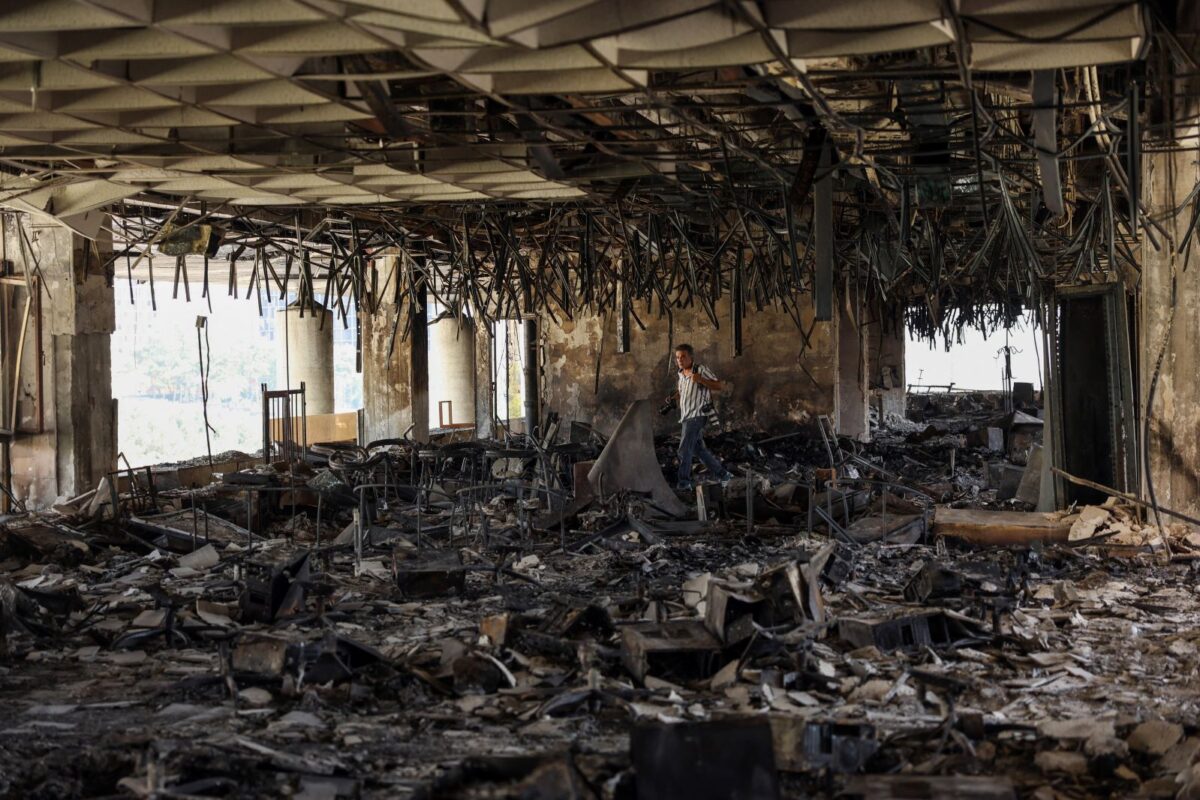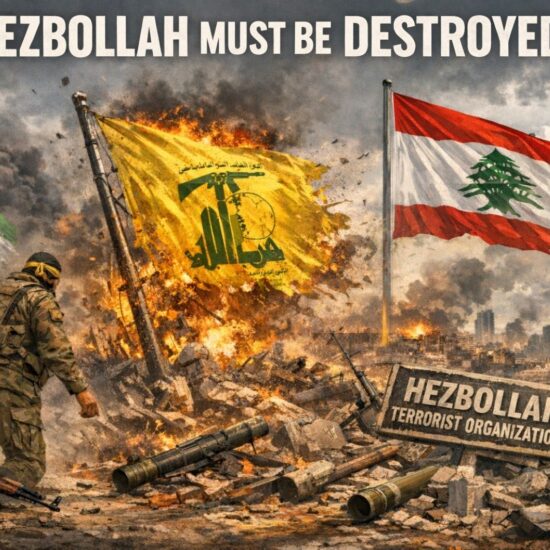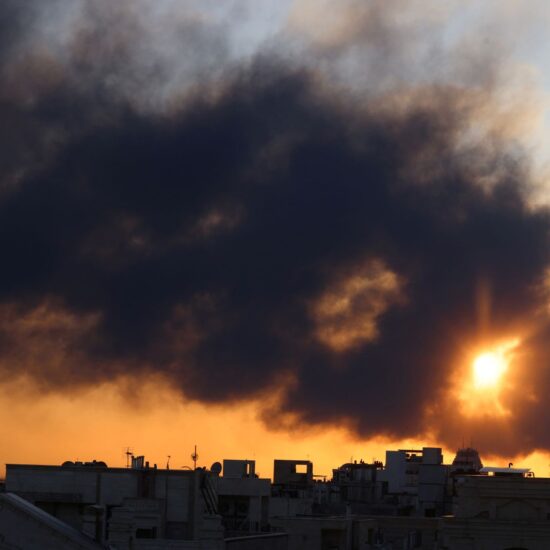
As Israel launches direct strikes against Iran and the long-anticipated confrontation enters a new, more dangerous phase, many in Lebanon have turned their eyes—and hopes—toward the unfolding drama. On television screens and social media feeds, the events have taken on the feel of a new season of the political thriller Tehran, with Lebanese viewers watching the clash between two regional powers that have shaped their fate for decades.
Iran’s regime, long reliant on the illusion of strategic patience and its backchannel negotiations with the Trump administration to revive the nuclear deal, seems to have been caught off guard by the breadth and intensity of the Israeli offensive. The scope of the strikes, their depth, and their precision were likely underestimated by Tehran’s leadership. This miscalculation alone warrants careful scrutiny in the days ahead.
In Lebanon, however, the responses have been telling. Hezbollah’s loyal base continues to offer unconditional support for Tehran regardless of the consequences. But beyond that enclave, many Lebanese—exhausted by years of economic ruin, political paralysis, and creeping Iranian hegemony—see this moment as a potential turning point. Some dare to hope that Iran’s strategic setback might weaken the grip of the Islamic Revolutionary Guard Corps (IRGC) on Lebanon, a grip that has turned their country into a frontline buffer and its citizens into human shields in a regional project that disrespects Lebanon’s sovereignty and exploits the Palestinian cause for its own cynical ends.
But thus far, these hopes remain largely aspirational. Despite this unprecedented opportunity, Lebanon’s so-called political elite, with few exceptions, appears content to spectate from the sidelines. Its leaders flip between channels, react to headlines, and issue vague statements—when what the moment demands is leadership, action, and sovereignty.
The single most urgent step Lebanon can and must take is the full implementation of UN Security Council Resolution 1701, which clearly calls for the disarmament of all militias operating on Lebanese soil, starting with Hezbollah. This obligation is not new—but it has never been honored. What makes the current moment different is that it offers political cover and international momentum to enforce this mandate.
Yet, from the Presidential Palace to Parliament, no serious steps have been taken. Even the recent visit of Palestinian President Mahmoud Abbas failed to produce any tangible action on disarming Palestinian factions or asserting the state’s authority over refugee camps. Instead, we are once again witnessing the kind of policy paralysis that has characterized Lebanese governance for years.
Most troubling is the resurfacing of the narrative that Hezbollah’s refusal to enter this current war is somehow a sign of restraint, neutrality, or wisdom. This framing is dangerous. It portrays a heavily armed non-state actor with deep ties to a foreign power—currently under military assault—as a responsible partner rather than a ticking time bomb. Rewarding Hezbollah for its current inaction by allowing it to retain its arsenal is not only illogical; it is suicidal. The arms themselves are the problem, not just how or when they are used.
Lebanon cannot afford to celebrate survival while surrendering sovereignty.
What is required now is nothing short of decisive executive action. The Lebanese government must break from the paralyzing grip of political appeasement and fulfill its constitutional duty: to impose the rule of law on all armed actors and to ensure that decisions of war and peace belong to the state—not to a militia.
If Hezbollah receives the “divine mandate” or instructions to fight, it will not hesitate to drag Lebanon into a suicidal war, whether against Israel or other domestic opponents. The country must not wait for that scenario to materialize. Instead, it must move now—through legal, military, and political channels—to reclaim its future.
Time is not on Lebanon’s side. Resolution 1701 must be enforced. Weapons outside state control must be seized or surrendered. And the illusion that Lebanon can serve as a passive stage for external conflicts must be shattered once and for all.
Until this happens, Lebanon will remain a footnote in someone else’s war, a platform for proxy ambitions, and a hostage to the silence of its own leaders.
This article was originally published in Nidaa al-Watan
Makram Rabah is the managing editor at Now Lebanon and an Assistant Professor at the American University of Beirut, Department of History. His book Conflict on Mount Lebanon: The Druze, the Maronites and Collective Memory (Edinburgh University Press) covers collective identities and the Lebanese Civil War. He tweets at @makramrabah







